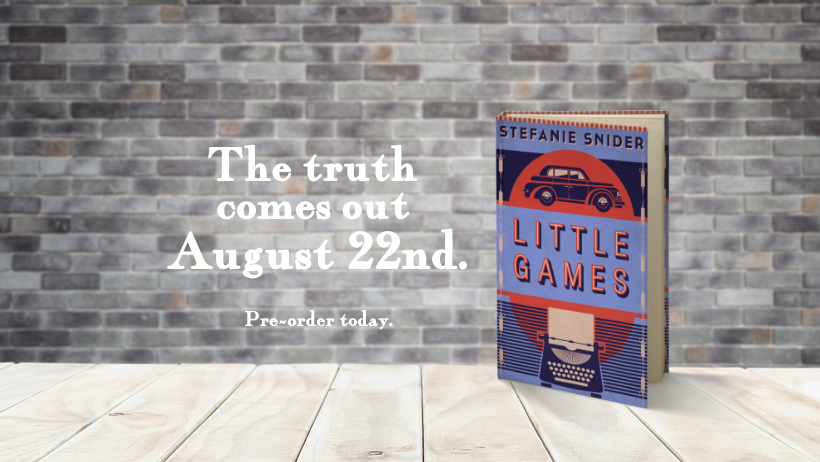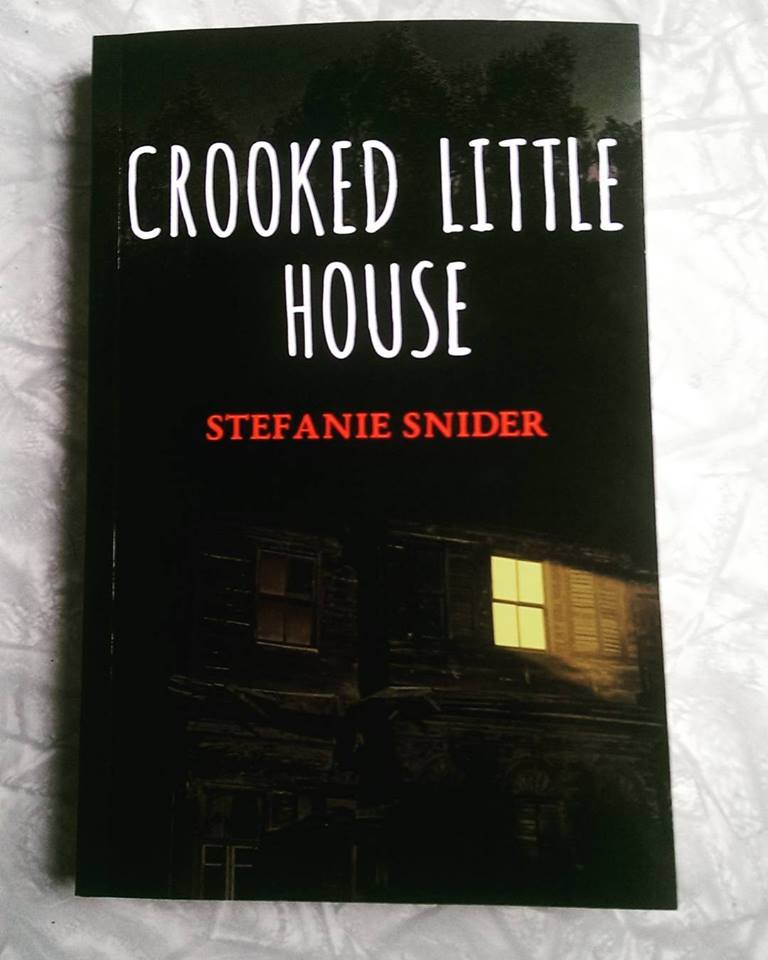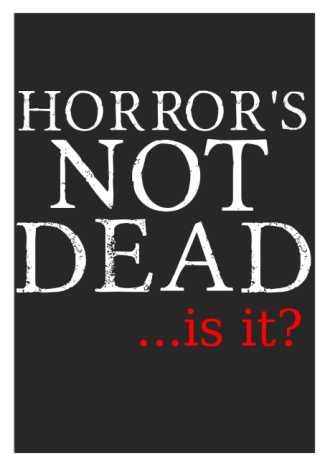Hey guys! Some of you haven’t yet stepped foot inside my Crooked Little House, so I thought I’d hold an open house for #WorldBookDay. Please pardon the mess. It’s a little run down: the roof is old, and the porch is a little precarious. But it’s a great place for a young couple just starting out. Because when you move in here you’re never alone…

Prologue
The wood was wet, which only made hard work harder.
It had rained for nearly a week by then, and when the men emerged from their tents that morning they found the first powdery snow dusting the leaves. It wouldn’t be long now before the cold would drive them home to dry their feet and hope there was enough food for the winter.
Alfred clapped his reddened hands. Sharp pinpricks stabbed through his chapped palms. He barely felt his fingers. The tips had gone an alarming white, but there was no time to wonder at that now.
An icy gust lashed at the trees, the melting snow pelting down like rain. He wished for the hundredth time he’d let Margaret patch the hole at the knee of his denims, but that would have left the baby without long pants for the coming winter. There was simply no choice. He’d just ignore it until the chill numbed the exposed skin there, too.
He wound his ragged scarf tighter and said a quick prayer. Just a little more time. Please. Just time enough to stow away a couple dollars more.
As if in answer, a weak beam of sunlight fought through the heavy canopy above, and for just a moment he felt like things were going to be okay.
“Get moving, Crooked,” a gruff voice said from behind him, and someone gave him a hefty shove. It was that bastard Romanov; he knew that much without looking. “One of these days,” Alfred muttered, but the threat died uncompleted in the icy air. With a name like Cruickshanks and a limp like his he supposed the nickname was inevitable, but there was no rule that said he had to like it. He thought briefly of stabbing Romanov while he slept; the site was scattered with old parts torn from the sawmill, some of which would undoubtedly be sharp…
But he’d be caught, blood on clothes he was unable to wash, and then there would be no one to take care of the family. He thought of Margaret, of her sister June, of their tangle of skinny dirty children all fighting for space in the one-room cabin. His feet carried him deeper into the woods. He couldn’t do much for them, not in his condition, but by God he could at least get them fed.
So long as the winter held off.
Please God.
“Good of you to join us,” griped Carson, the site boss. “We need all the help we can get.”
Alfred winced. It was easy enough to read between the lines: he wasn’t nearly as good a worker as his brother Ben had been, and everyone here knew it. He wasn’t as strong, or as fast. Nor as smart, if he were honest. Until six months ago he’d never even touched a piece of lumber, but with Ben in the ground and the mill one worker short the foreman had made him a reluctant offer. It was one step above alms and everyone knew that too. He was a warm body and not much else.
The wind cut through his heavy wool coat as if he wore nothing at all.
“You’ll be pushing today. Hope you ate your oats,” Carson said. A few thin chuckles rose from the men around him. The rations they’d started with had dwindled badly and the next delivery was days away. They’d watered the gruel until it ran like water, barely any taste let alone any sustenance.
Alfred put his hands on the damp rump of a log and shoved, willing his thin arms to stop quivering.
The saw pulled the wood hungrily, the metal screaming against the grain. This particular log had been stripped already, a fact for which Alfred was grateful. Soon enough he’d be pelted with loamy bark; he liked his first piece to be clean.
The blade bit into the heavy oak, cutting cleanly like a hot knife through butter. Alfred’s stomach growled at the thought. He tried not to wonder what the women were doing today, what they were eating, whether they had wood enough for the fire. Them, with a fire and no wood. Him, with all the wood he could ever want and no warmth at all.
Funny, how the world worked.
The log under his frozen hands had stopped moving. The saw was caught on a knot in the wood, most like. He shoved harder, ruddy face reddening darker with the effort. The blade whined.
“Goddamn it.” He looked for help but the clearing was empty now. The other men had gone off, some to fell more trees, some to snatch a taste of the whisky hidden in their boots.
He went to the blade.
A fine white smoke was creeping up from the narrow cut. The blade shuddered, bucking every two or three revolutions. Alfred didn’t know exactly what that meant but he knew it couldn’t be good.
“Need some help there, Crooked?”
The muscles in his back tightened. “No. I’ve got it.”
A mean chortle. “Don’t look like it.”
Alfred knelt in the frost by the base of the saw. He traced the movement of the gears, peered at the grimy bolts. Everything looked fine, but then again he had no idea what he was looking for.
Above him the whine grew shriller and the blade bucked again.
“Get outta the way, Cripple. You’re gonna kill the thing.”
A strong hand on his shoulder.
The wet-dog smell of unwashed flesh.
Then he was on his feet, Romanov hoisting him like a child before shoving him out of the way.
“Go on, now. Let a real man handle this.”
Alfred’s whole body tensed. He saw Romanov through a narrowing tunnel, one with darkness on all sides. Heat ran up his neck and settled in his ears. His knees threatened to give way beneath him.
Let a real man handle this. As if he hadn’t taken in his brother’s family. As if he didn’t lay awake at night, belly screaming empty just so he could send home a few cents extra. As if he didn’t give them everything they needed, no matter the cost to himself.
A real man.
His vision washed grey. Then red.
“You son of a bitch!” Then he was on Romanov, punching as hard as he could, making up for his lack of fighting know-how with sheer angry brutality. He felt the man’s left eye go soft beneath his knuckles; he heard the telltale pop as one of his teeth let go.
Romanov held him close, trying to pin his arms, so he pummeled the back of his skull.
There were shouts from the woods but Alfred heard them only distantly. His ears were full of sloshing hot blood.
Then sick animal instinct kicked in and he buried his teeth in Romanov’s neck.
The man howled, the sound deadened by the tall trees around them. Romanov stumbled, trying now to push Alfred away, to break the horrible bond between them.
Romanov turned, his ankle snapping, and he fell.
Alfred fought for balance, weak arms pinwheeling in the frigid air, hot copper blood washing down his chin. He landed hard against the mill, narrowly missing the screaming blade.
He had three seconds to be thankful before the metal teeth grabbed his scarf.
So this is how it ends, he thought calmly, just before the smoking blade bit his throat. The gristle of his trachea was no trouble for the speeding steel; the knuckled bone of his spine knocked the saw back into alignment. Alfred’s body went past on one side, his head on the other, and the unjammed log pushed everything through.
Those days were tough. Waste would not, could not, be tolerated. Carson had one of the men sand down the log, and when the stubborn stains didn’t fade he shrugged and loaded the wood onto the edger.
The sawdust fell red and steaming to the frosty ground.
Chapter One
They had been saving for months.
At first it was a maybe thing, a future thing. Their own house. A ridiculous concept, really: all their friends lived in starter apartments, basements for some, lofts for the very lucky, and here they were looking for an honest-to-god house.
“Think of it,” Stella whispered in the dark. Her legs entwined, sinew and silk, around Denton’s. Her toes, always cold, bullied their way between his arches. He smelled her hair, the crown warm under his chin. She smelled like fresh green apples. “Think: our own place. I could have a studio at home. I can work anywhere, you know that. And you could have a big kitchen.”
“With a big price tag, to boot.”
She kicked him gently under the covers. “Don’t be so negative. You make good money, and I’m starting to, and really, we don’t spend much. If we just cut back—”
“We’re living in your parents’ basement. How much more can we cut?”
“Exactly! We don’t pay rent here. It’ll be easy; we just have to watch our expenses. Less coffee at the shop, more home brew. I’ve been reading all kinds of tips online. I’ll… I’ll keep a budget! We’ll have an envelope for groceries, and one for gas. I won’t buy clothes. We can make this happen.”
She’d propped herself up on one elbow, her profile a darker shadow against the room’s near-blackness. “I really want this. I really want to start my life with you.”
He’d sighed; they both knew she always got her way. And while he couldn’t possibly think of it working out (closing costs and home inspections and renovations, all so foreign to his mid-twenties brain) he knew that somehow they’d manage. And he knew that whenever he thought of his future, it always, always included Stella.
So he’d proposed, quietly, ringing her finger with his own. There, in the dark, on their too-small mattress.
And as weeks turned to months, their little bank account began to grow.
Stella eschewed a big ring, saying it was money better spent on the house. “You can buy me a fancy ring after,” she told him, “once we’re all settled.” So he bought her a simple silver band, with one tiny diamond chip that glinted only if you held it a certain way under certain light. She made all her friends admire it, as if it was five carats atop her slender finger. And when some were underwhelmed, she waved it under their noses. “Take a good look,” she crowed. “This is what buying a house looks like.”
She found a little ceramic house at the thrift store and put it by the bathroom sink, so that every day when they brushed their teeth they’d be reminded of their goal.
The account reached five thousand, more than either of them had ever managed.
Denton took on more shifts at the restaurant, staying to close and clean even though those jobs were well below his pay grade. Stella stayed up late at night, her laptop bathing a sleeping Denton in a sickly blue glow as she tried hard not to clack the keys too loud. She snapped up even the smallest gigs, the ones everyone else turned down. Quick sketches of weird anthropomorphic characters doing things she’d rather not think about. Logos for small start ups, whose founders were just out of high school. Manically happy cartoon accountants. She hadn’t done much pen-and-ink for months, but it was a hell of a lot faster than oils. She sketched in the grocery line, on the toilet, on the bus. She even picked up a few shifts tending bar at a shitty little pub, though the abuse was bad and the hours worse.
The account rounded ten thousand, then twenty.
Denton teased her that she was going all Martha on him; for the first time in her life Stella had ventured into a fabric store, emerging with armfuls of discounted cotton prints waiting to be made into throw pillows for furniture they didn’t yet own.
They contacted an agent, then another when the first couldn’t be bothered with a couple of kids.
Stella turned twenty three in the damp basement and vowed that she’d celebrate her next birthday with friends crowded around a heavy wooden table in her very own kitchen.
When September came they started seriously scouring realty sites. Crazy, Stella pointed out, how you could buy just about everything online. When her parents had bought their starter home, they’d trekked all over the city with a map and a thick red marker, checking off whole neighbourhoods. Instead, she crawled under the blankets with her new fiancé and they clicked their way into their future.
Nothing caught their attention, until it did.
The house looked a lot smaller than the others, though the lot it sat on was big. A small cottage, in every sense of the word: the ad pointed out the rustic wooden shingles (probably rotting, Denton thought) topping a weathered barn wood exterior. The covered front porch ran the width of the house, sagging badly in the middle, and Denton was shocked that it was able even to support the planters hung there. The front door was a screen and wood affair, the kind that slammed shut all summer long, and the storm door was heavy oak with stained glass. There were shutters (these boasted carved hearts) and a little red mailbox on a post by the curb. When Stella dragged the picture bigger, they could just make out a rusted weather vane: a rooster, canted drunkenly to the side, as though the breeze it was made for would knock it clean off the roof.
And Stella fell in love. Of course.
“It looks like it needs a lot of repairs,” Denton said. “And a hell of a lot of renovation, too.”
“But just look at it! It has a little garden—”
“We can put in a garden anywhere.”
“But this one’s mature. Look! I think those are peach trees! We could have our own peaches.”
“I hate peaches.”
“Yeah, well I don’t. I could… I could make jam.”
“You’ve never been anywhere near a stove.”
“You could teach me,” she said lightly. She flicked through the interior pictures, pointing out the spacious master bedroom, the claw foot tub (“Original!” as though it made a difference), the tidy little mudroom by the back door, just off the kitchen.
But when she got to the second-to-last picture, Denton felt a tiny zap go through him.
An attic. An honest-to-God attic, just like in the movies. Warm wood, smoothed but not finished, lined the tiny vaulted ceiling. Low shelves were tucked neatly under the eaves, and already Denton could see Stella’s jars of brushes and pens gleaming there. There was an old-fashioned circular window facing the street. Leaded glass, the kind no one made any more.
And there, sealing the deal, making it impossible to turn back: a workbench, flooded with light from the skylight overhead. He imagined Stella sitting there, sunlight shining on her hair, saw the happiness in her face as she turned, radiant, to greet him at the doorway.
Stella started to scroll to the next picture, but Denton caught her hand.
He pictured her sitting in that attic, worn moccasins on her feet and a mug of long-cold coffee sitting on the workbench beside her. He could almost hear the wind whispering past the eaves; could almost smell the comforting scent of rough-hewn cedar. He thought of chilly afternoons with the rain tapping gently on the skylight above. He thought maybe, just maybe, this could be what Stella needed to really get her career off the ground. No more distractions. No more excuses. He thought of how happy she would be there.
“I want this house,” he said, and coming from Denton, Mister Wishy-Washy, Mr Consider All The Angles First, the firm decree was like booming thunder.
Thanks for stopping by! I hope you enjoyed your visit. If you’d like to stay a little longer, maybe poke around in the attic (I mean, I wouldn’t, but then again I know what’s up there), the full book is available on Amazon and many other online book retailers.











